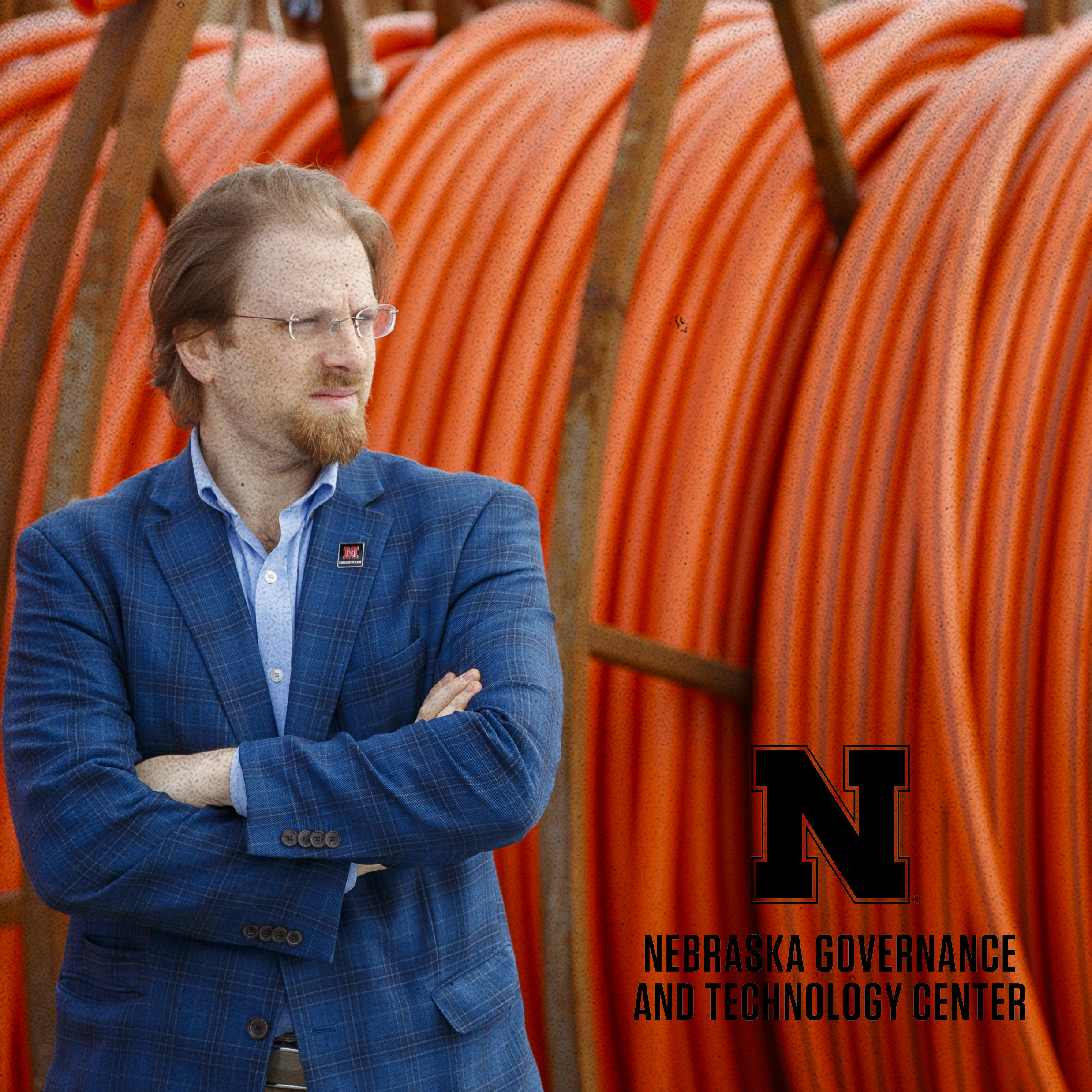Tue, 03/30/2021
In this edition of The Record we are highlighting a significant curricular change at the Nebraska Governance and Technology Center (NGTC) that has important implications not only for students at UNL Law, but also for the ways in which Law and Technology is taught as a discipline. Traditionally a pedagogical weakness in the way that law and other fields have been taught is that they have been approached as if they exist in silos, with interdisciplinary discussions being ancillary to what is otherwise a narrow-bore approach to a subject. The NGTC aims to change that within the context of law and technology, by, among other things, creating a curriculum that is open to all graduate students at the University.
The cornerstone of the curriculum is a three-week Concepts class, which will serve as a foundational pre-requisite for other courses in the technology governance curriculum, introducing foundation legal, technical, and regulatory concepts in a manner accessible to all students.
The other courses offered as part of the curriculum are designed to be integrated and modular, meaning students are free to take any selection of classes, which are consciously designed to complement each other.
Other than the Concepts class, which is offered in a three-week block at the beginning of each semester, classes are offered in 6-week blocks. The Technology Governance Curriculum is made up of the following classes, in addition to the Concepts course:
-
Cyberlaw: Jurisdiction and Laws Governing Users (fall): This course explores a wide range of legal issues in the online context and their real-world consequences. The course focuses on how the law applies and affects users and organizations. Sample topics include: jurisdictional and international issues; a set of specific statutory and Constitutional issues such as Section 230 and search warrants; encryption and intellectual property.
-
Platforms: Networks and Infrastructure (fall): This course introduces students to the legal, policy, economic, and technological issues surrounding the regulation of communications networks and infrastructure. It is structured primarily around the Federal Communications Commission (FCC) and covers topics including regulation of broadcast radio and television, cable and satellite television, the telephone network, cellular and wireless communications, and the Internet.
-
Platforms: Speech and Media (fall): This course deals with content governance in both online and more traditional media. It covers a range of constitutional and statutory issues relating to online speech, including the law of incitement, hate speech, pornography, and misinformation, and examines the role of privately-owned online platforms (including online platforms such as Twitter and Facebook and “traditional” platforms such a newspapers and radio broadcasters) in regulating this speech through private governance.
-
Privacy: Informational, Reputational, and Dignitary Harms (spring): This course covers the laws and regulations that govern information privacy in the United States and around the world and the struggles of protecting individual privacy in the modern era. A central focus is on the meaning of informational, reputational, and dignitary harms.
-
Cybersecurity and Sectoral Data Regulation (spring): This course covers the various legal frameworks that govern data- and cybersecurity, such as data breach notification laws, regulatory data security requirements such as contained in HIPAA and GLBA, and the patchwork of statute and common law tools available for addressing cybersecurity concerns. It also prepares students to interact with professionals in other fields relevant to cybersecurity practice, and broader policy discussions about cybersecurity law and policy.
Tags: Center News
